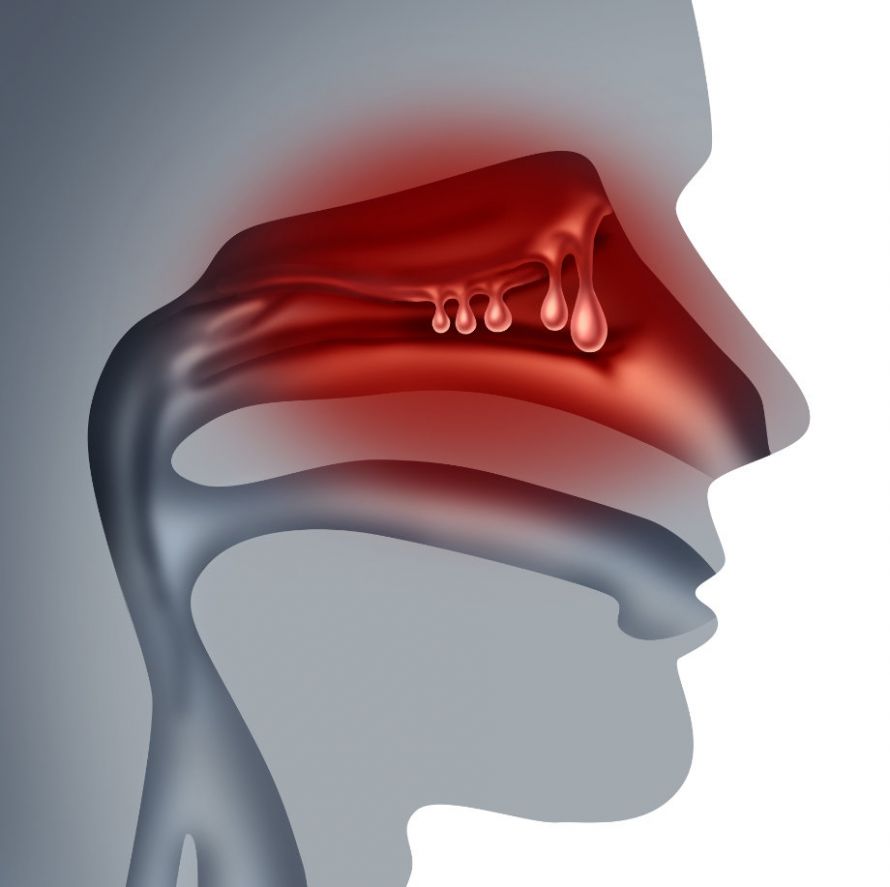The causes and the exact development of nasal polyps are still not clearly understood. Nasal polyps often occur in connection with ASA intolerance. If these patients take aspirin or ASA, nasal airway obstruction occurs.
The symptoms of nasal polyps are usually manifested by
- a slow loss of the ability to smell, and
- an increasing nasal obstruction.
Nasal polyps can be associated with a crooked nasal septum and enlarged nasal turbinates.
The treatment of nasal polyps is initially performed with medication. Local cortisone therapy in the form of a nasal spray can reduce nasal polyps. The nasal spray should be used regularly over a period of at least 3 to 4 weeks. Unfortunately, this treatment is not always successful.
If drug therapy does not show the desired success, surgical treatment is necessary. The nasal polyps are completely removed from the main nasal cavity and paranasal sinuses and examined histologically.
In some cases, access to the paranasal sinuses requires surgery on the nasal septum. To prevent postoperative bleeding, the surgeon inserts nasal tamponades into the nostrils.
The procedure is performed either under general anaesthesia or as an outpatient under local anaesthesia.
The inpatient admission takes place one day before the operation. All the examinations and discussions necessary for the operation take place on this day. Preliminary examinations include a blood sample in any case. The doctor will also discuss the type of anaesthetic and the procedure with you.
You need to fast (not eat or drink anything) on the day of the operation. This means that from 0:00 on the day of the inpatient admission you should
- not eat or drink,
- not smoke,
- not chew gum
- not suck sweets.
On the first day after the operation, the nasal tamponades are removed.
In the following days, the nose is cleaned of incrustations twice a day and wound secretions are aspirated. The nurses will give you helpful tips on how to care for your nose.
Due to the possible risk of postoperative bleeding, inpatient monitoring is necessary. The duration of the inpatient stay depends on the wound healing. Usually expect to stay in hospital for four to five days.
On the day of discharge, the wound conditions will be checked again and you will receive a doctor's letter for your ear, nose and throat specialist practice.

Nasal polyps can lead to loss of the sense of smell © freshidea | AdobeStock
As with any operation, there may be general
- wound healing disorders,
- an infection or
- bleeding.
Specifically, there is a risk of temporary disturbances in the sense of smell and numbness of the upper row of teeth. This is usually caused by swelling or old blood in the nose.
In very rare cases, these complaints persist.
The paranasal sinuses are adjacent to the eye and the base of the skull. Therefore
- injuries to the eye with double vision and blindness, as well as
- injuries to the meninx with cerebrospinal fluid flow and meningitis
may occur. These complications are extremely rare.
After discharge, your ear, nose and throat specialist practice will take over further treatment. For up to two weeks after the operation, you should not blow your nose and should be careful about
- taking hot baths,
- strong sunlight and
- physical exertion (e.g. sport)
as there is still a risk of secondary bleeding.
It usually takes about two to three weeks for the nose to heal completely.














